Filter by
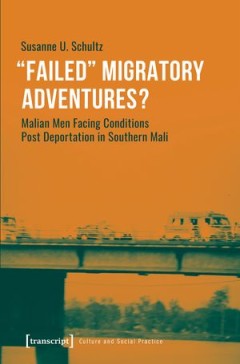
Failed Migratory Adventures?: Malian Men Facing Conditions Post Deportation i…
The effects of the intra-African and European deportation regimes brought about since the European Union's externalization of its migration and development policy by transferring it to countries of sub-Saharan Africa remain largely understudied - especially their effects on people's everyday life after forced returns. Based on extensive field research, Susanne U. Schultz's book analyses the sup…
- Edition
- -
- ISBN/ISSN
- 9783839460092
- Collation
- -
- Series Title
- -
- Call Number
- 301 SCH f
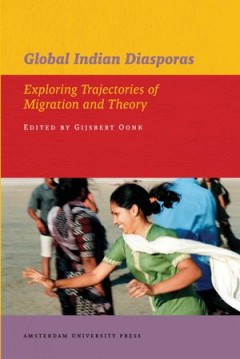
Global Indian Diasporas
This book discusses the relation of South Asian migrants to their homeland, the reproduction of Indian culture abroad and the role of the Indian state in reconnecting migrants of India, focusing on the limits of the diaspora concept, rather than on its possibilities. From a comparative perspective, using examples from South Asian communities in Suriname, Mauritius, East Africa, the UK, Canada a…
- Edition
- -
- ISBN/ISSN
- 9789053560358
- Collation
- -
- Series Title
- -
- Call Number
- -
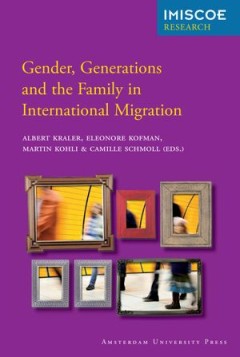
Gender, Generations and the Family in International Migration
Family-related migration is moving to the centre of political debates on migration, integration and multiculturalism in Europe. It is also more and more leading to lively academic interest in the family dimensions of international migration. At the same time, strands of research on family migrations and migrant families remain separate from - and sometimes ignorant of - each other. This volume …
- Edition
- -
- ISBN/ISSN
- 9789089642851
- Collation
- -
- Series Title
- -
- Call Number
- -
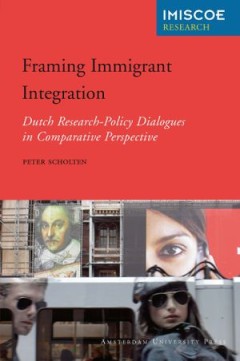
Framing Immigrant Integration
Debates on immigrant integration are often caught up in what academics and politicians like to call 'national models of integration'. Researchers and policymakers long for common ground. In the Netherlands, their symbiosis is fed by multiculturalism, something for which Dutch society has long been seen as exemplary. Still, the incorporation of migrants remains one of the country's most pressing…
- Edition
- -
- ISBN/ISSN
- 9789089642844
- Collation
- -
- Series Title
- -
- Call Number
- -
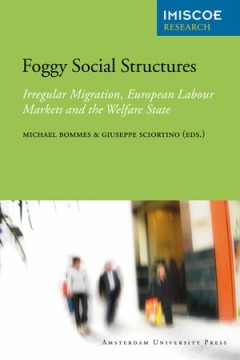
Foggy Social Structures
Irregular migration systems are giving way to an undocumented population in Europe that is estimated at some millions. The migrants manage to live and work for years without a certified identity yet within 'foggy' social structures. What strategies and mechanisms allow them to avoid detection, generate an income and access necessary services? What alternatives are pursued - at whatever human co…
- Edition
- -
- ISBN/ISSN
- 9789089643414
- Collation
- -
- Series Title
- -
- Call Number
- -
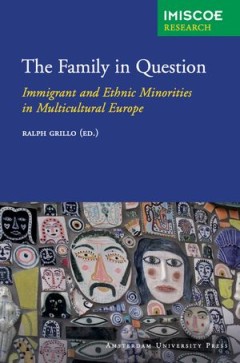
The Family in Question Immigrant and Ethnic Minorities in Multicultural Europe
The family lives of immigrants and ethnic minority populations have become central to arguments about the right and wrong ways of living in multicultural societies. While the characteristic cultural practices of such families have long been scrutinized by the media and policy makers, these groups themselves are beginning to reflect on how to manage their family relationships. Exploring case stu…
- Edition
- -
- ISBN/ISSN
- 9789053568699
- Collation
- -
- Series Title
- -
- Call Number
- -
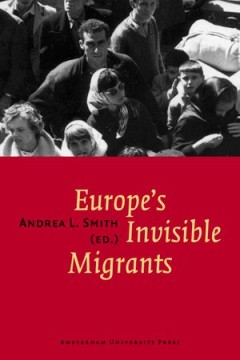
Europe's Invisible Migrants
Following the decolonization movements that swept the globe after World War II, between four and six million people were 'returned' to Europe from the colonies. From an exporter of people, Europe turned to a site of immigration for the first time in the twentieth century. Until now, these migrations have been overlooked as scholars have highlighted instead the parallel migrations of former 'col…
- Edition
- -
- ISBN/ISSN
- 9789053565711
- Collation
- -
- Series Title
- -
- Call Number
- -
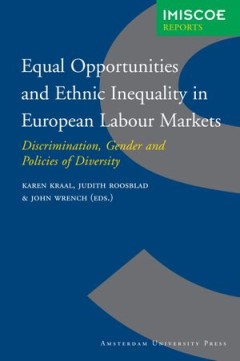
Equal Opportunities and Ethnic Inequality in European Labour Markets
The need to analyse labour market mechanisms in post-industrial Western societies is urgent. Despite laws and policy measures being developed at the European, national and local levels, job-seeking immigrants and ethnic minorities still suffer unequal access and ethnic discrimination. This volume endeavours to understand why. Four chapters dealing with discrimination, gender, equity policies an…
- Edition
- -
- ISBN/ISSN
- 9789089641267
- Collation
- -
- Series Title
- -
- Call Number
- -

The Dynamics of International Migration and Settlement in Europe
A fundamental issue in society today, migration has been undergoing a new dynamic transformation, calling for new policy approaches. This new dynamic is not yet understood clearly, let alone that adequate policy answers for 'the managing' of these new migration processes and the consequences for receiving and sending societies are within. This comprehensive overview of migration research conduc…
- Edition
- -
- ISBN/ISSN
- 9789053568668
- Collation
- -
- Series Title
- -
- Call Number
- -

The Creolisation of London Kinship
In the last 50 years, the United Kingdom has witnessed a growing proportion of mixed African-Caribbean and white British families. With rich new primary evidence of 'mixed-race' in the capital city, The Creolisation of London Kinship thoughtfully explores this population. Making an indelible contribution to both kinship research and wider social debates, the book emphasises a long-term evolutio…
- Edition
- -
- ISBN/ISSN
- 9789089642356
- Collation
- -
- Series Title
- -
- Call Number
- -
 Computer Science, Information & General Works
Computer Science, Information & General Works  Philosophy & Psychology
Philosophy & Psychology  Religion
Religion  Social Sciences
Social Sciences  Language
Language  Pure Science
Pure Science  Applied Sciences
Applied Sciences  Art & Recreation
Art & Recreation  Literature
Literature  History & Geography
History & Geography